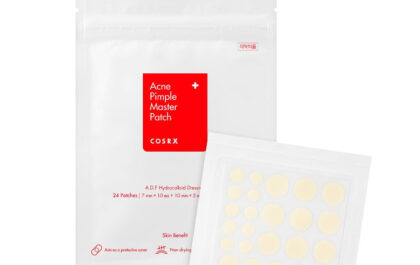Retinol is a vitamin A derivative commonly used in skincare products to reduce wrinkles and acne and improve the skin’s overall appearance. While retinol has many benefits, it can also cause side effects if not used correctly.
Introduction
Retinol is a type of vitamin A found in over-the-counter skin care products. It is a popular ingredient in anti-aging and acne-fighting products because it has been shown to have various benefits for the skin.
Retinol uses for increasing cell turnover in the skin, which can help reduce the appearance of fine lines and wrinkles and improve skin texture and tone. It can also help to unclog pores and reduce the appearance of acne.
Retinol is converted to retinoic acid once it’s in the skin. Retinoic acid is the active form of vitamin A that can interact with specific skin receptors to control skin cells’ growth and behavior.
Once absorbed, retinol can help stimulate collagen production and increase cell turnover rate, decreasing the appearance of fine lines and wrinkles.
It is important to note that overuse or use of high-concentration retinol can cause skin irritation, dryness, and sun sensitivity.
It’s best to use retinol products in small amounts and gradually increase use as the skin becomes acclimated. Sunscreen is also highly recommended when using any retinol products.

What Are The Common Retinol Side Effects?
Retinol is generally considered a safe and effective ingredient for most people, but it can cause some side effects. The most common side effects of using retinol products include the following:
- Skin irritation: Retinol can cause redness, dryness, and flaking of the skin, especially when first using the product or if the product is too strong. These symptoms usually go away as the skin becomes acclimated to the product.
- Sun sensitivity: Retinol can make the skin more sensitive to the sun, increasing the risk of sunburn. Using sunscreen when using retinol products and avoiding prolonged sun exposure is essential.
- Discoloration: Some people may experience darkening of the skin or hyperpigmentation, especially those who have darker skin tones.
- Breakouts: Some people may experience breakouts as retinol causes cell turnover.
If you experience these side effects, you should stop using the product and speak to a dermatologist. They may recommend a lower-strength product or a product that contains retinol combined with other ingredients to reduce irritation. And remember to always patch test before using a new product. This helps detect any adverse reactions before using it on your face.
Tips To Help Avoid Unwanted Side Effects When Using Products with Retinol
Here are a few tips to help you avoid unwanted side effects when using products with retinol:
- Start using a retinol product with a low concentration and use it once or twice a week. Gradually increase the frequency of use as your skin becomes acclimated to the product.
- Retinol can cause dryness and flaking, so it’s essential to use a moisturizer to help hydrate and soothe the skin.
- Retinol can make the skin more sensitive to the sun, so sunscreen is essential to protect the skin from UV damage.
- Many skin care products contain other ingredients that can cause irritation for people with sensitive skin. Be mindful of that, and check the ingredients list before using a product.
It’s also a good idea to consult an esthetician before using retinol products, especially if you have sensitive skin or a history of skin reactions. They can recommend the appropriate product for your skin type and provide guidance on how to use it.
Conclusion
Retinol is a powerful skincare ingredient that can help reduce the signs of aging and improve skin health. However, it can also cause some side effects if misused or in excess. Common side effects include dryness, redness, irritation, and peeling.
To reduce or avoid these side effects, it is essential to start with a low concentration of retinol and slowly increase the concentration as your skin becomes more tolerant. It is also important to use moisturizers and sunscreens to help protect your skin from further irritation. With proper use and caution, retinol can be an effective tool for improving your skin health.



